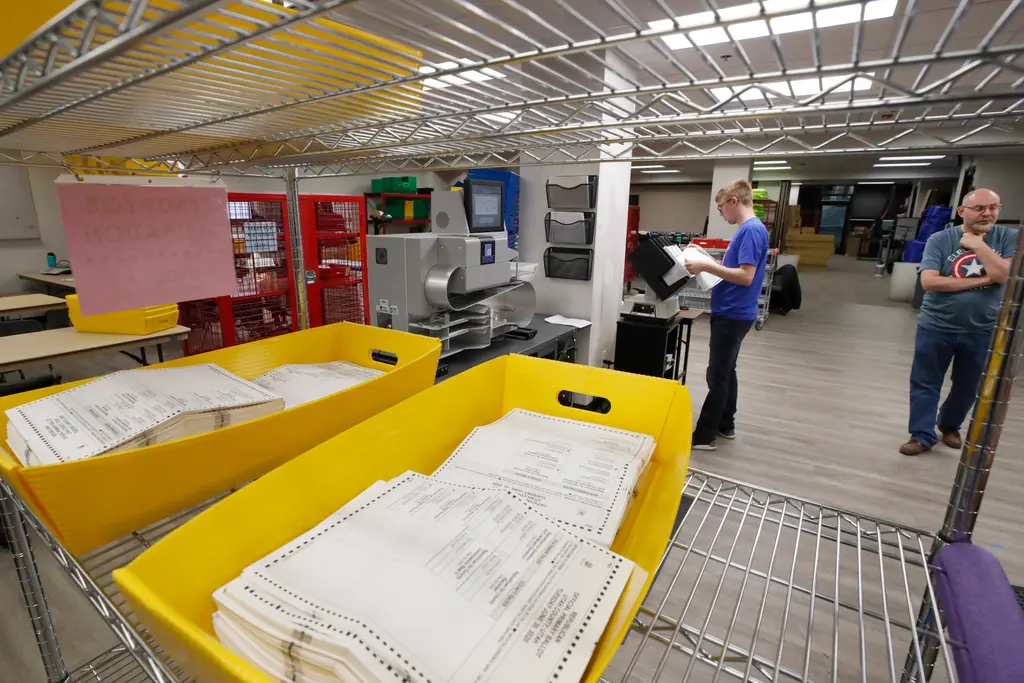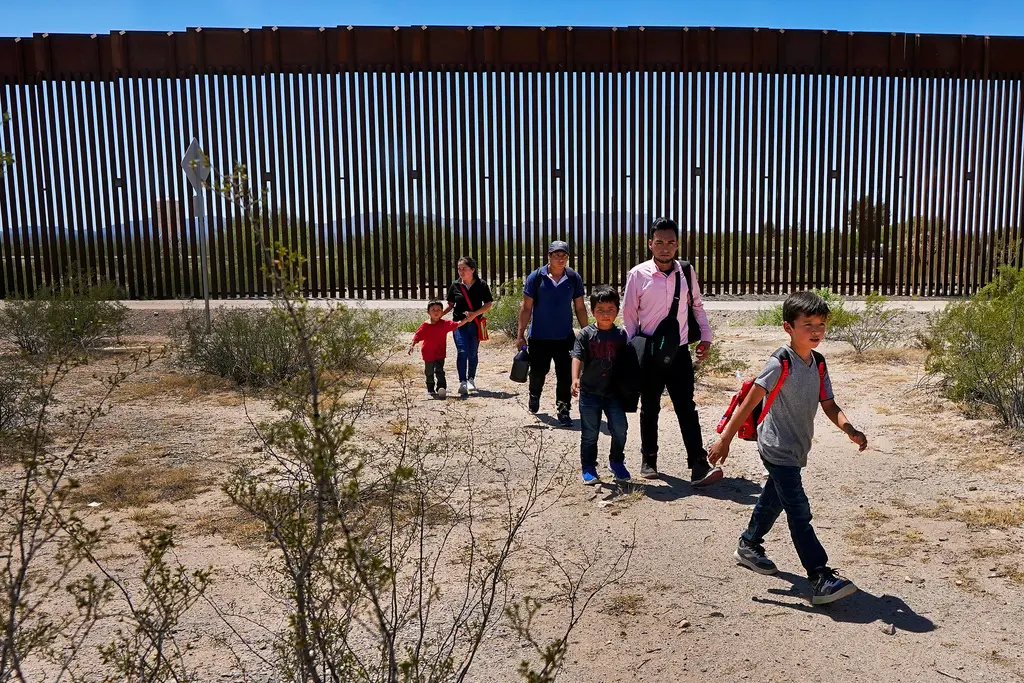Personnel is key to foreign policy

In just over a month, the debates over Latin America´s future will relocate from capital cities to the global entertainment capital of the world, Los Angeles. The occasion will be the ninth Summit of the Americas, the most important region-wide event on the Western Hemisphere´s calendar.
The Summit, which the U.S. is hosting for the second time, has taken place approximately once every three years since the inaugural event was held in Miami in 1994. It is the only meeting of all leaders from the countries of North, South, and Central America and the Caribbean. It draws heads of state, attracts key international organizations with regional presence, and brings together private sector players, civil society advocates, and influential thought leaders.
As the Summit´s host, the United States is in a good place to use Summit deliberations to shape a vision of a prosperous democratic path for the region’s future. Yet, the U.S. aspires to do more than lead debate about what models of government and economic development best serve the broader goals of freedom, liberty, and sovereignty.
After the important meetings are over, it aspires to have far-reaching influence over the impactful policy processes that emerge from the Summit. Without that ground-level influence that affects peoples’ daily lives, steering the debate in the right direction runs the risk of being done in vain.
Therein lies the challenge for U.S. leadership in the Americas. While its influence shaping the big debates about the future is secure, its influence over the policy processes guiding the implementation of big ideas into action plans is not.
Multipolarity in the Americas is part of the reason why the U.S. does not wield the ground-level influence it would like to. China’s geo-economic presence in Latin America -- most recently via the incorporation of Bolivia, Chile, Argentina, and Uruguay into the Belt and Road Initiative -- has changed the game. Beijing now represents a formidable alternative to the United States.
During the peak of the pandemic, China and Russia worked hard to provide the region’s governments with vaccines, PPE, and medical infrastructure.
Notwithstanding any problems with the quality of the vaccines provided or valid concerns about any strings attached to these public health cooperation deals, the fact is China and Russia arrived with offers of assistance before the United Stated did. It is little surprise why outcompeting China and Russia in the Americas is now a central goal of the Biden istration’s global strategy to stabilize the liberal international order.
Más sobre Opinion
A second reason why the U.S. lacks the strong ground-level influence it would like to have is that we are seriously short staffed. Due to an unusually high number of vacancies to senior-level diplomatic posts in the Americas, the presence of the United States on the front-lines of government actions is a fraction of what it should be. This is a fixable problem that, moreover, has a solution staring us right in the face.
A couple of developments would immediately advance the core national interests of the United States in the Americas, as well as pay dividends with higher quality results at the Summit. One, the Biden istration has nominated highly qualified individuals to become ambassadors to key countries in the Americas such as Brazil, Chile, Dominican Republic, Panama, El Salvador, some of these nominations are stalled in the Senate gridlock, creating a bottleneck to advance with nominations pending to other countries in the region.
Two Presidentially-appointed top-level policy makers, such as Biden’s nominees for Ambassador to the Organization of American States and Executive Director to the Inter-American Development (IDB) Bank, both nominees with impressive credentials, also need Congressional approval to become permanent representatives so they can perform their jobs at the highest level possible.
Having the IDB U.S. Executive Director and OAS Ambassador confirmed, and in office, for a critically important occasion such as the Summit is particularly necessary. The lack of visibility of U.S. leadership at the IDB and OAS will not be well received by our partners in the region, given the important role that the IDB plays in promoting the economic and social development of the region and the huge role the OAS plays in developing a hemispheric agenda for strengthening democracy and security. Particularly relevant is the role IDB can play in addressing the root causes of migration as well as financing the transition to clean energy, both of which will be central themes in the Summit’s agenda.
Often, the saying that ‘personnel is policy’ is applied to help us make sense of why the President deserves the opportunity to have their nominees be confirmed. After all, a President can implement policy more effectively when their vision is translated by staff trusted by the President.
But there is another crucial way in which the phrase ‘personnel is policy’ rings true. When it comes to addressing the challenge of developing harmonized policy practices in the Latin American neighborhood, personnel is policy, too.
The only way the U.S. can hold its peers able to the agreements they make is if we have empowered implementers positioned in the key places where the rubber meets the road. Only empowered implementers - Ambassadors, Confirmed Senior Level Officials at multilateral institutions - can build the relationships of trust that can deliver reliable results for our neighbors’ infrastructure systems, power grids, educational systems, and transportation hubs.
Without empowered implementers in place, we can forget about building a coalition to outcompete China and Russia at the level of ideas and at the level of practice.
In over a month from now, when the Summit begins, the U.S. will be well represented in Los Angeles. Biden has appointed former U.S. Senator Christopher Dodd and former Congresswoman Debbie Mucarsel-Powell as his Summit advisors. To be sure, through its senior official representatives -- a delegation to be headed by either the President or Vice-President -- the U.S. will have significant influence over what agreements countries announce in the context of Summit deliberations.
However, turning parchment into practice will require more than executive leadership and much more than a successful Summit. It will require a highly visible staff of U.S. Ambassadors and Senior level officials who are enabled by Congress and the President to carry out the high-impact government actions that, in line with the President’s vision, can change economic fortunes, reduce the drivers of migration, and provide protections for refugees and the dispossessed more broadly.
Most importantly, these implementers can prove, through actions, that a good governance-based model of economic development will reliably deliver the short- and long-term gains that China’s high-risk model cannot generate.
So, as it turns out, gaining a strategic edge over China and Russia in the Americas begins at home. Here in Washington we can easily make personnel moves that will invariably strengthen the hand of the United States in the competition over what model and policies will drive the Americas to a better future.
It is a desirable effort and time well spent in the sessions of the Senate to move on and confirm nominees to key countries and multilateral posts like the OAS and IDB. If we fail to act, we will regret for decades not having an impactful presence in the hemisphere in this particular historical juncture.



